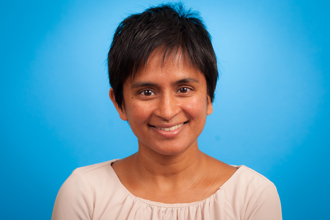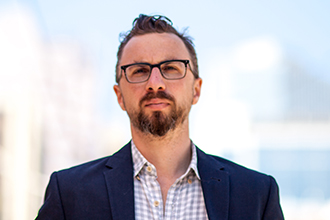St. Michael’s researchers receive more than $4-million in federal funding to better understand the impact of COVID-19

By Christy Janssens
The federal government is awarding more than $4 million to four research projects from St. Michael’s Hospital exploring questions related to COVID-19.
The funding, announced Thursday, is part of a $109M investment over one year for COVID-19 research. This will support 139 research teams across Canada and will focus on accelerating the development, testing, and implementation of measures to mitigate the rapid spread of COVID-19 and its negative consequences on people, communities, and health systems.
These projects will explore why COVID-19 unfolded differently across Canadian provinces, how a short course of medication might help people recently exposed to COVID-19, what data can tell us about how to organize hospital services to produce better outcomes for COVID-19 patients, and how services might be adjusted to prevent drug overdoses during the pandemic.
The Government of Canada is providing the funding through CIHR and the International Development Research Centre (IDRC), in partnership with Alberta Innovates (AI), Michael Smith Foundation for Health Research (MSFHR), Research Manitoba (RM), Research Nova Scotia (RNS), Saskatchewan Health Research Foundation (SHRF), and the New Brunswick Health Research Foundation (NBHRF).
Here is a closer look at research projects at St. Michael’s.
Examining the different provincial responses to the pandemic

Dr. Sharmistha Mishra
Dr. Sharmistha Mishra, a Scientist at the Li Ka Shing Knowledge Institute (LKSKI), will study and compare how COVID-19 unfolded across Canadian provinces to better understand which populations are most at-risk.
Using available data to examine the impact of public health measures on certain population groups in the first wave of the pandemic can inform the way we respond to future waves.
Can a short course of medication prevent COVID-19 infection in people exposed to the virus?

Dr. Darrell Tan
This project, led by Dr. Darrell Tan, Scientist at the MAP Centre for Urban Health Solutions, looks at whether a course of medication may prevent infection in those recently exposed to COVID-19.
The research team will study the efficacy of a prevention strategy called post-exposure prophylaxis (PEP). People who were recently exposed to the virus will take a short course of medication. The goal is to find out if taking an oral medication called lopinavir/ritonavir (LPV/r) – which is currently used as PEP for HIV exposure – for 14 days will prevent further infection.
They will use an innovative ‘ring’-based study design, a method used successfully to help eradicate smallpox and evaluate a vaccine for Ebola. For this study, a ‘ring’ is defined as exposed contacts around confirmed COVID-19 cases. These rings will then be randomized to either the study drug or control (no study drug) condition.
If the trial is effective, this strategy could be immediately implemented both in Canada and around the world as the drug is globally available.
How can hospitals best organize themselves to tackle COVID-19?

Dr. Amol Verma and Dr. Fahad Razak
Hospitals needed to reorganize their systems during the pandemic to conserve resources such as PPE and ventilators. In this study, Dr. Amol Verma and Dr. Fahad Razak, both Scientists at the LKSKI, will use hospital data collected during the pandemic to understand how to better organize hospital care to produce the best possible outcomes for patients with COVID-19. The research will also inform how to maintain quality care for non-COVID patients during the pandemic.
This research will be informed by data collected across seven hospitals in Ontario, with a plan to extend to collect data from 30 hospitals across Ontario by the end of 2020 – covering more than 70 per cent of the acute care hospital beds in the province. Billions of data points will be collected and analyzed using artificial intelligence methods through a partnership with the Vector Institute.
Beyond the pandemic, this work will also offer insight into how the organization of hospital care affects patient outcomes. This research network will form the largest ‘big data’ hospital analytics partnership in Canada and one of few such examples globally.
How has the pandemic impacted access to care for people who inject drugs?

Dr. Daniel Werb
The COVID-19 pandemic impeded the ability of people who inject drugs to access proper services that could help them avoid illness or death, including safe injection sites and clinics that provide addiction treatment and access to stable housing.
Researchers noted a spike in overdoses in March and April 2020, which interrupted a yearlong trend of declining overdoses. While this spike appeared to be related to the pandemic, there was no evidence to prove the relationship. This project will aim to better understand how people who inject drugs have been impacted by COVID-19 and how support services can support this population during the pandemic.
This project, led by Dr. Daniel Werb, a Scientist at the MAP Centre for Urban Health Solutions, will use unique access to clinical data of people who inject drugs in Canada to examine the ways that the pandemic affects this group of people by assessing their clinical outcomes to people’s self-reported behaviors.
This research will help identify who is at highest risk of both COVID-19 and overdose and how those risks interact. It will also track how social distancing measures impact people who inject drugs who want to use services to prevent overdose in Toronto, such as addictions treatment access, supervised injection services, and street drug checking.
About St. Michael’s Hospital
St. Michael’s Hospital provides compassionate care to all who enter its doors. The hospital also provides outstanding medical education to future health care professionals in more than 27 academic disciplines. Critical care and trauma, heart disease, neurosurgery, diabetes, cancer care, care of the homeless and global health are among the Hospital’s recognized areas of expertise. Through the Keenan Research Centre and the Li Ka Shing International Healthcare Education Centre, which make up the Li Ka Shing Knowledge Institute, research and education at St. Michael’s Hospital are recognized and make an impact around the world. Founded in 1892, the hospital is fully affiliated with the University of Toronto.
About Unity Health Toronto
Unity Health Toronto, comprised of Providence Healthcare, St. Joseph’s Health Centre and St. Michael’s Hospital, works to advance the health of everyone in our urban communities and beyond. Our health network serves patients, residents and clients across the full spectrum of care, spanning primary care, secondary community care, tertiary and quaternary care services to post-acute through rehabilitation, palliative care and long-term care, while investing in world-class research and education. For more information, visit www.unityhealth.to.
